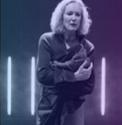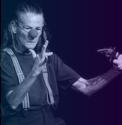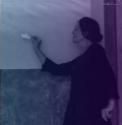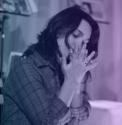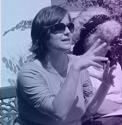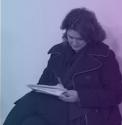The Lion and the Breath
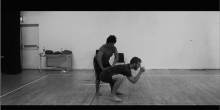
Below is an abstract of a video article that my collaborator and I published under the Journal of Embodied Research. Please see the link here https://jer.openlibhums.org/articles/10.16995/jer.6/
Abstract
This research looks at the effects of kalaripayattu and Fitzmaurice Voicework techniques as a training methodology for the contemporary actor, redefining the fundamental principles that already exist within the two forms and placing its emphasis on the articulation of the imagination through their combination. Fitzmaurice Voicework was inspired by yoga, shiatsu, and bioenergetic psychotherapy, and its methods include releasing patterns of habitual holding within the viscera causing an autonomic response known as a tremor. Training in Kalaripayattu, an ancient South Indian martial art, is a preparatory tool for the body to develop a kinesthetic awareness: an organic ability to be in the optimal state of readiness. In the process of defining our research findings, we created a systematic methodology that consisted of four stages: 1) Studio training combining Kalaripayattu and Fitzmaurice Voicework; 2) Training with Kalaripayattu masters in Kerala, India; 3) Experimentation and exploration of the two forms of collaborative training; and 4) Analysis and dissemination of findings at a conference of the Voice and Speech Trainers Association London Conference. This systematic approach provided us with the framework to answer our research questions: 1) Can combining techniques from Kalaripayattu and Fitzmaurice Voicework lead to an effective new cross-cultural methodology for professional actor training? 2) What kinds of psychophysical and somatic affect can arise from the combination of these two forms?
Keywords: Kalaripayattu , Fitzmaurice Voicework , actor training , intercultural , embodied research

